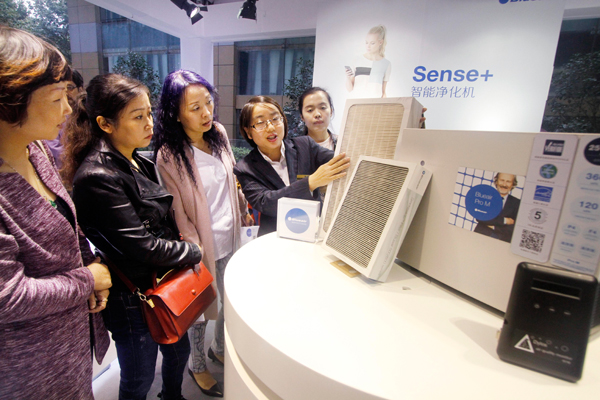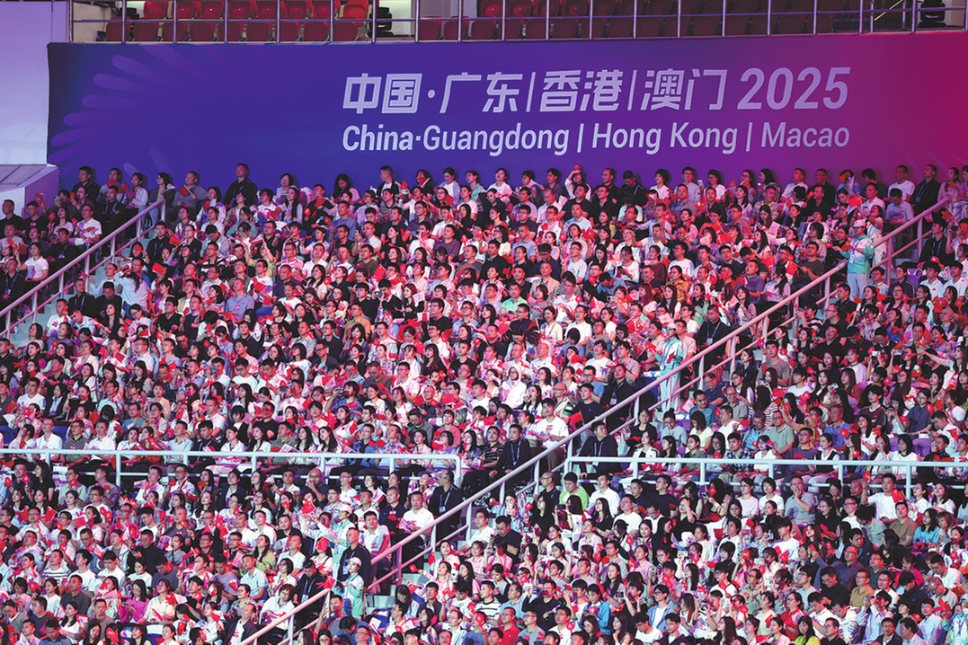Blueair sees clear skies ahead
By Xu Junqian in Shanghai | China Daily | Updated: 2018-01-12 09:22

Mehmet Altinok, CEO of the air purifier company, talks about growth strategy and plans for the China market
As the CEO of air purifier manufacturer Blueair, Mehmet Altinok quips that selling clean air is basically like selling ice cream, as they are both primarily seasonal products. One is a necessity in winter-especially in China-and the other is a summer treat.
But of course, the former helmsman of the Central Asia market for Unilever, which last year acquired the Swedish company, is well aware that it takes more effort and investment to get consumers to pay for a durable machine than, say, a sundae or the bottles of shampoo he used to sell.
"When one buys a bottle of shampoo and doesn't like it, it's a $3 mistake. When it comes to durables, the importance of making the right decision for every household is multiplied by 100 times. So we need to do more education," Altinok said during an exclusive interview with China Daily, when he visited Shanghai recently for the first time as CEO of Blueair.
Established in 1996 in Stockholm, Blueair entered the Chinese market in 2006. But it was not until 2013, when the US Embassy in Beijing placed an order of several thousand purifiers from the company, that the brand-if not the category of air purifiers in general-became widely known among Chinese residents.
Today, China is not only the company's largest market, contributing to about three quarters of its revenue and maintaining a double-digit growth rate, but also one of the four key markets for the global air-purifier market, together with the United States, Japan and South Korea, according to Altinok.
In 2015, the company consolidated sales of $106 million. With an ambition to bring Blueair to a billion-dollar business over the next three to five years, Altinok talked about the challenges and opportunities he sees in achieving that goal.

CV
Nationality:Turkish
Career:
2016: CEO of Blueair
2013: CEO of Unilever Turkey, Central Asia and Iran
Education:
MBA degree from Middle East Technical University
Bachelor's degree in mechanical engineering from Middle East Technical University
China is taking increasingly tough measures to curb air pollution. Would that have a negative effect on the company's performance?
I don't think we will lose opportunities or growth in China even though the government is working on that. First... it's a long process. And I think we should all work together because our goal is the same: to bring people clean air. If you look at the US, for example, which doesn't have much polluted air, its market size is as big as China. So you don't buy an air purifier only because of polluted air. There are also many people having asthma or are allergic to pollens. So gradually the pollution might decrease, but there are other uses of the machine that keep people (coming) back. Besides, I don't think the air will be that clean in the near future that we don't need any purification.
I am very glad that the government is putting more efforts on cleaning the air, which also helps raise awareness.
What's the unique growth engine that drives the sales of air-purification products in China?
I think Chinese people are quite health conscious, more than people in many other countries. And when it comes to the health of their children, the awareness is even higher. The current penetration of air purifiers in China is around 5 percent. In bigger cities like Shanghai, it's 10 percent and (in) Beijing, it's 15 percent. But overall, 5 percent is a very small penetration. So there definitely will be more people buying the machines since the awareness is already there. And we are also launching products like the masks so that people can have both clean air indoors and outdoors.
Is the mask launched exclusively for China?
China is the first market, and then other markets like India and European cities that are afflicted with polluted air like London and Paris. Automobiles and factories are affecting everywhere. Pollution has been an issue everywhere, not only in China. The reason China becomes the largest market for air purifiers, population aside, is not because the country has the worst air conditions, but people here have the highest awareness.
Where do you think that awareness comes from?
First, the government is publicizing air quality index in more than 100 cities. Not every country or government is doing that. In fact, to my knowledge, very few countries are doing that. In Shanghai alone, there are 25 locations measuring the quality. That effort makes residents here follow the air quality like people following weather forecast, the rain and the storm.
On the other hand, the air pollution is visible so it keeps people alert. No one can fix the issue in a short time all by himself, including the government. It requires joint efforts from every part (of society). And that awareness is the cornerstone.
What's the biggest challenge for Blueair to keep growing in China?
Everyone thinks that China is such a large market that if I sell just one to every Chinese, it's a billion-yuan business. But that mathematics does not always work.
The world's largest market is also the toughest. There are more than 400 air purifier companies just in China's e-commerce market. We are not only competing with global brands; there are lots of agile and intelligent local brands.
But still, competition helps to build the market and make people understand the importance of clean air. Competition always drives growth and makes players ... agile and responsive.
Does Blueair tailor any product for the Chinese market?
No, but China has the best Blueair products, because consumers here always demand the best and are willing to pay for it. By being best, I mean in terms of product quality, the energy consumption and noise level. And the Chinese government also sets up the highest standards.
(In March 2016, the Standardization Administration of China introduced a new standard for air purifiers to be sold in the country. Within six months, about 100 air-purifier brands retreated from the market for failing to meet the standards, according to a report by industry watcher China Market Monitor Company.)
We also started to have an R&D center in Shanghai this year, which is staffed by six to seven people. It's really important to be close to our biggest market and understand the needs of our consumers.
How do you achieve the balance between globalization and localization?
Being global (usually) gives you a scale and cost advantage. But that is not always the case. Needs from people in different markets are different.
In our case, for example, 80 percent of the machines are the same, while the other 20 (percent) are adjusted for different pollutants. In the United States, the biggest use results from pet allergies, as nearly half of the homes there own a pet. Machines are just one thing. Then how you communicate and educate the importance of the machine are other things (to be localized).
What's the secret of your business success in China?
It's a million-dollar question. I think, first of all, you have to understand the culture. The other learning is to never underestimate the competition, especially local players. Last but not least, you have to focus. You cannot go everywhere at the same time. No company has the resources to cover every part of China overnight.
How do you motivate your Chinese staff?
I don't think my Chinese employees need a special motivation. But I think the biggest mistake many foreign companies make in China is they think they know everything. Respecting Chinese employees is very important.
























